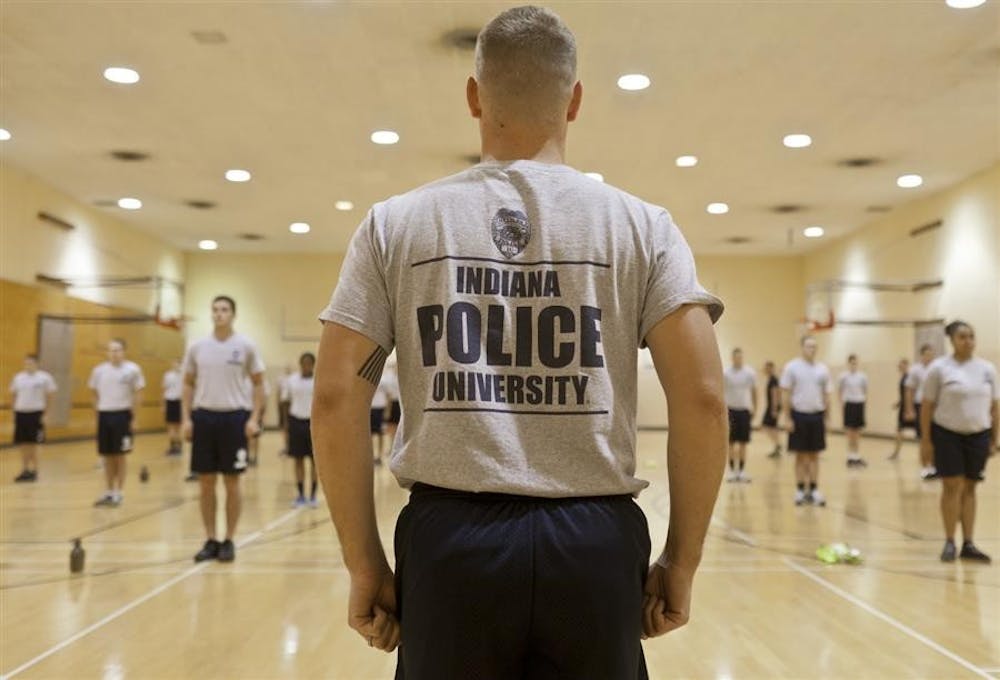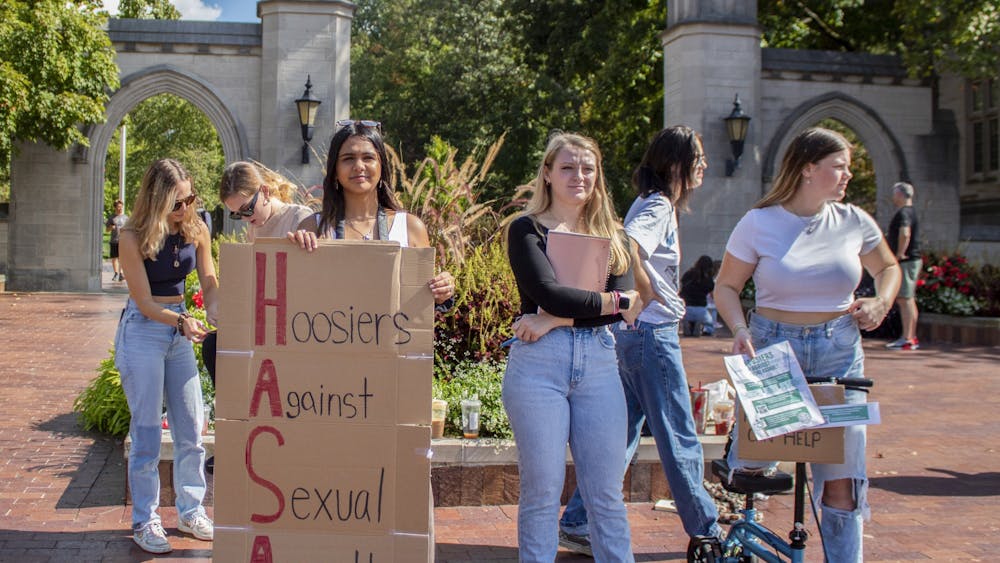Sixty hours of criminal law is part of the Indiana University Police Academy’s mandated curriculum. Now, the academy is looking at a new way of presenting the copious hours to cadets.
“For years, our criminal law instructor was Herb Kilmer,” Captain Greg Butler of IUPD said. “He retired and was no longer available to teach criminal law, so we needed someone to teach it to our academy recruits.”
The academy approached the Monroe County prosecutor’s office and asked if they would be willing to teach criminal law to the cadets. The prosecutor’s office agreed to take on the task.
“Our office interacts with police officers from different law enforcement agencies on a daily basis,” Monroe County Prosecuting Attorney Chris Gaal said in a press release. “We see the benefits from the training and professionalism instilled by the academy, so we are glad to participate in this program.”
Butler said the new approach is giving the academy a wider spectrum of experience to be presented to cadets.
“It’s a different approach than what we had before,” Butler said. “Since there’s more than just the prosecutor in that office — he has his deputy prosecutors and staff — we’re getting a wide variety of expertise that’s available within the prosecutor’s office to help present the criminal law that is required for police officers to know in order to graduate the academy.”
According to the release, the criminal law class will be taught by three instructors and include special presentations from others. First deputy prosecutor Jeff Kehr, senior trial deputy prosecutor Geoffrey Bradley and deputy juvenile prosecutor Rich Hansen will teach the class.
Special presentations from sex crimes deputy prosecutor Darcie Fawcett, domestic violence deputy prosecutor Jackie Dakich and drug crimes deputy prosecutor Erika Oliphant will also be included.
This week, the academy and prosecutor’s office will present cadets with practical application exercises during which the prosecutor will oversee how the cadets perform in a real situation, Butler said.
“We actually set up a scenario and they have to try to remember what they’ve been taught and the rules of evidence, interrogation and all that with people, searches, and see if they can apply some of the principles they’ve learned in class to the real situation,” Butler said.
Though the new vamped-up approach includes more instructors, it will come at no extra cost to cadets. The prosecutor’s office provides the instruction because it’s a good relationship to establish with law enforcement, Butler said.
The partnership gives cadets the ability to learn from people with years of experience and apply what they learn to real-life situations.
“It’s something we haven’t really done before in our criminal law package, so that should be a good experience for them,” Butler said.
After graduating from the Academy, the newly certified officers, who are also full-time students, will work as police officers for the IU Police Department on seven IU campuses, according to the release. Butler said he hopes the new approach will give cadets the experience they need, both in the classroom and the field, for their future.
“It seems that the students are very receptive to it,” Butler said. “I think they like this approach because they get a variety of people presenting the criminal law to them so they’re getting different perspectives, different levels of experience. It helps when you have that available to them when they ask questions.”
Cadets learn criminal law with new method

Get stories like this in your inbox
Subscribe





